
eWEAR Symposium 2022
Thursday, September 8, 2022, 9:00am to 6:30pm PDT
Affiliate Registration – eWEAR Affiliate member companies, VIPs, and the Stanford University community with SUNetID
Non-affiliate Registration – Prospective members and other paying attendees
Questions? Ask wearable-electronics@stanford.edu
Location: This will be a hybrid event live on Zoom and in person at Stanford University. If you are interested in attending in-person please select “in-person” when registering above.
Use buttons below to jump to a specific section:
Agenda & Speakers:
9:00am- Angela McIntyre, Welcome
9:15am- Professor Zhenan Bao, “Skin-inspired soft Sensors for muscle, brain and gut”
9:45am- Professor Ian H. Gotlib, “Early life stress, neurodevelopment, and depression in adolescents: The impact of the COVID-19 pandemic”
10:15am- Professor Tom Soh, “Real-time biosensor technology”
10:45am- Break (15 minutes)
11:00am- Professor Jamie Zeitzer, “Landscape of diurnal human activity patterns and health outcomes”
11:30am- Professor Karl Deisseroth, fireside chat, Projections: A story of human emotions
12:00pm- Lunch (1 hour)
1:00pm- Jim Huang, Ph.D. (Meta Reality Labs), “Wearable system design toward human-centric computing”
1:30pm- Professor Ken Goodson, “Heat management using metamaterials”
2:00pm- Jonathan Berent (NextSense, Inc), “Neural digital twins redefine brain computer interfaces (BCI)”
2:30pm- Tony Faranesh (Google), “From sensors to product, the Fitbit Heart Study and wearable detection of atrial fibrillation”
3:00pm- Break (15 minutes)
3:15pm- Panel Discussion “Medical Human Digital Twin”: Jennifer Hicks, Ph.D. (Stanford), Professor Ellen Kuhl (Stanford), Steven Levine (Dassault Systèmes), Dave Miller (Unlearn.AI); Moderator: Ryan Spitler, Ph.D. (PHIND, Stanford)
4:15pm- Poster preview talks
5:00pm- Poster Session & Reception (In-person only, Huang Foyer, 5:00pm-6:30pm)
Abstracts and Bios:
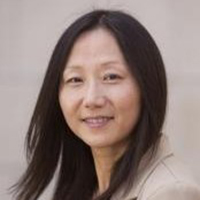
Zhenan Bao
K.K. Lee Professor in Chemical Engineering
Stanford University
Prior to joining Stanford in 2004, she was a Distinguished Member of Technical Staff in Bell Labs, Lucent Technologies from 1995-2004. She received her Ph.D in Chemistry from the University of Chicago in 1995. She has over 700 refereed publications and over 100 US patents with a Google Scholar H-Index >190.
Bao is a member of the National Academy of Engineering, the American Academy of Arts and Sciences and the National Academy of Inventors. She serves on the Board of Directors of the Camille and Henry Dreyfus Foundation and is a member of its scientific affair committee.
Bao was the inaugural recipient of the VinFuture Prize Female Innovator 2022, the ACS Chemistry of Materials Award 2022, MRS Mid-Career Award in 2021, AICHE Alpha Chi Sigma Award 2021, ACS Central Science Disruptor and Innovator Prize in 2020, Gibbs Medal by the Chicago session of ACS in 2020, Wilhelm Exner Medal by Austrian Federal Minister of Science 2018, ACS Award on Applied Polymer Science 2017, L’Oréal-UNESCO For Women in Science Award in the Physical Sciences 2017.
Bao is a co-founder and on the Board of Directors for C3 Nano and PyrAmes, both are silicon-valley venture funded start-ups. She serves as an advising Partner for Fusion Venture Capital.

Ian H. Gotlib
Marjorie Mhoon Fair Professor, Psychology
Stanford University
In his research, Dr. Gotlib examines psychobiological factors that place individuals at increased risk for developing depression and engaging in suicidal behaviors, as well as processes that are protective in this context. More specifically, Dr. Gotlib examines neural, cognitive, social, endocrinological, and genetic factors in depressed individuals and applies findings from these investigations to the study of predictors of depression in children at risk for this disorder. In related projects, Dr. Gotlib is also examining the differential effects of early life stress on the trajectories of neurodevelopment in boys and girls through puberty in an effort to explain the increased prevalence of depression and suicidal behaviors in girls in adolescence. Finally, Dr. Gotlib is extending this work to the study of brain function and structure, endocrine function, and behaviors in neonates and infants being raised in suboptimal environments.
Dr. Gotlib’s research is supported largely by grants from the National Institutes of Health. He has also been funded by the National Health Research Development Program and the Medical Research Council of Canada, and leads an interdisciplinary team funded by PHIND. Dr. Gotlib has received the Distinguished Investigator Award from the National Alliance for Research in Schizophrenia and Affective Disorders, the Joseph Zubin Award for lifetime research contributions to the understanding of psychopathology, the APA Award for Distinguished Scientific Contribution, the APS Distinguished Scientist Award, and a MERIT award from NIMH. He has published over 500 scientific articles and has written or edited several books in the areas of depression and stress, including the Handbook of Depression with Constance Hammen, now in its 3rd edition. He is a Fellow of the American Psychological Association, the Association for Psychological Science, and the American Psychopathological Association, and is Past President of the Society for Research in Psychopathology.

H. Tom Soh
Professor of Electrical Engineering and Radiology and, by courtesy Chemical Engineering and Bioengineering
Stanford University
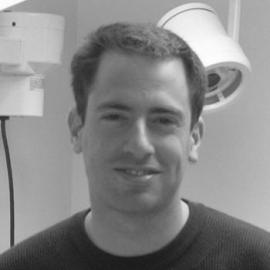
Jamie Zeitzer
Associate Professor (Research) of Psychiatry and Behavioral Sciences, Psych/Sleep Medicine
Stanford University

Karl Deisseroth
D. H. Chen Professor, Professor of Bioengineering and of Psychiatry and Behavioral Sciences
Stanford University
Karl Deisseroth is Professor of Bioengineering, and of Psychiatry and Behavioral Sciences, at Stanford, and Investigator of the Howard Hughes Medical Institute. Deisseroth received his undergraduate degree from Harvard in 1992, his PhD from Stanford in 1998, and his MD from Stanford in 2000. Deisseroth then completed his medical internship and adult psychiatry residency at Stanford, and is board-certified by the American Board of Psychiatry and Neurology. He continues as a practicing psychiatrist (inpatient and outpatient) at Stanford with specialization in affective disorders and autism-spectrum disease, employing medications along with neural stimulation. Deisseroth also serves as Director of Undergraduate Education for Bioengineering at Stanford, and is known for providing free educational programs that have disseminated his technologies to thousands of laboratories around the world.
In exploring how properties of the brain arise from activity of its cellular components, Deisseroth has pioneered the basic science discoveries that enabled this goal, including resolving the structural and functional mysteries of natural light-gated ion channels, and discovery of the neural cell types and connections that cause adaptive and maladaptive behavior. Along the way, over the last 17 years, his laboratory has created and developed technologies for observing and controlling biological systems (like the brain) at high resolution, while maintaining these systems in the intact state; these technologies include optogenetics, hydrogel-tissue chemistry, and a broad range of enabling methods.
Deisseroth has also published a book of literary nonfiction, relating the experiences of psychiatric patients to modern neuroscience– Projections (Penguin Random House)– in 2021.
Deisseroth was elected to the US National Academy of Medicine in 2010, to the US National Academy of Sciences in 2012, and to the US National Academy of Engineering in 2019. For his work, Deisseroth has received the 2010 Nakasone Prize, 2012 Perl Prize, 2013 Lounsbery Prize, 2013 Gabbay Prize, 2013 BRAIN Prize, 2014 Dickson Prize in Science, 2015 Breakthrough Prize, Keio Prize, 2015 Lurie Prize, 2015 Albany Prize, 2015 Dickson Prize in Medicine, 2016 BBVA Award, 2017 Massry Prize, 2017 Fresenius Prize, 2018 Gairdner Award, 2018 Kyoto Prize, 2020 Heineken Prize, and 2021 Lasker Award.
In this fireside chat, we will explore with Prof. Deisseroth fascinating insights from his book…
- How optogenetics is mapping pathways of emotion in the brain
- Differences in neural processing for autism, anxiety, and bipolar disorder
- How genetics and evolution played a role in allowing mental disorders to exist

Tsung-Ching (Jim) Huang, Ph.D.
Research Scientist
Meta Reality Labs
Dr. Tsung-Ching (Jim) Huang is a Research Scientist with Meta Reality Labs and he leads research projects related to flexible and stretchable electronics design and modeling. Prior to Meta Reliability Labs, he was a Senior Research Scientist at Hewlett Packard Labs, Senior Design Engineer at tsmc, and Post-Doctoral Researcher at University of Tokyo. His research interests include energy-efficient circuit design, reliable flexible and stretchable system, and design automation. He has 50+ peer-reviewed publications and 40+ US patents granted. Dr. Huang is Fellow of NextFlex and Senior Member of IEEE.

Ken Goodson
Davies Family Provostial Professor, Senior Associate Dean for Faculty & Academic Affairs in the School of Engineering, Professor of Mechanical Engineering, Professor, by courtesy, of Materials Science & Engineering
Stanford University
Ken Goodson is the Davies Family Provostial Professor and the Senior Associate Engineering Dean for Faculty and Academic Affairs at Stanford, where he holds appointments in Mechanical Engineering and (by courtesy) Materials Science. His 50 PhD graduates are distributed evenly IC companies and professorships at top schools including MIT, Princeton, Stanford, and UC Berkeley. Goodson is a member of the National Academy of Engineering and a Fellow with ASME, IEEE, APS, AAAS, and the National Academy of Inventors (NAI). Awards include the ASME Kraus Medal, the inaugural IEEE Richard Chu Award, the AIChE Kern Award, and the SRC Technical Excellence, University Researcher, and Aristotle Awards. Goodson has 35 patents and co-founded Cooligy, which built heat sinks for Apple desktops. He served recently as Stanford Mechanical Engineering Chair and recruited 15 faculty who transformed the department’s scholarship and diversity.

Jonathan Berent
CEO & Founder
NextSense, Inc.
Jonathan “JB” Berent is the CEO and Founder of NextSense, Inc, a spinoff of X, Google’s Moonshot Factory. He combines broad executive business experiences at elite Silicon Valley tech companies with a passion for driving novel scientific exploration in states of consciousness. Prior to a career pivot in 2016 focused on building novel biosensing wearables, JB was responsible for driving revenue at Oracle at their inside sales division, Oracle Direct, earning the distinction of Director of the Year based on his team having the highest performance across the 2000 person Org in 2008. After Oracle, JB led sales & partnerships, Birst, a SF based start-up focused on business intelligence reporting to the CEO. JB joined Google in 2011 to lead their West Coast sales and partnerships efforts for the newly formed Google Offers, a direct competitor to GroupOn. JB managed teams of 110+ people with responsibility of $50M+ at public companies.
In 2016, JB followed his passion and left Sales and Partnerships to focus on a life-long belief that unlocking the mind is the key to both health and maximizing human potential. He built a team at X to develop brain sensing technologies. What started as a 20 percent project in 2017 grew into X’s largest funded early-pipeline project by 2020. At NextSense, he completed 3 IP transactions, 3 commercial contracts with Pharma, and two academic partnerships in the first 12 months. Along with a number prominent sleep and dream researchers, he published the groundbreaking study revealing a mechanism to study an altered state of consciousness accessible during sleep. Berent has spoken at various conferences such as Chan Zuckerberg BioHub, Stanford Medicine Big Data Health, and the California Sleep Society where he discussed the latest scientific findings for an unusual state of dreaming characterized by increased frontal lobe activity despite being in a classic REM state. He is a regular guest lecturer at Stanford’s popular Dement’s Sleep and Dream course. Berent gave the inaugural First Annual Dr. Ahmed Ghouri Medical AI Memorial Lecture in 2021 at UCSF. JB was invited to speak to the National Academies of Science Standing Committee of Biotechnology Capabilities and National Security Needs in Jan 2022 on the topic, “Discussing the Impending Impact of Pervasive Brain – Monitoring Technology.” JB was featured in long-read cover story in Wired magazine in the June 2022 print edition He was also named “One to Watch” by Robb Report in June 2022. JB received his BA with Honors in Philosophy & Religious Studies from Stanford University.

Tony Faranesh
Staff Research Scientist
Google
Tony is a research scientist with a focus on using consumer technologies to empower people to manage and improve their health. At Fitbit and Google, Tony leads algorithm development and clinical studies using wearables for disease screening and monitoring. Tony led the Fitbit Heart Study, the clinical trial for the Fitbit Irregular Rhythm Notifications feature, designed to detect signs of atrial fibrillation from the optical heart rate sensors on Fitbit devices.
Tony obtained his Ph.D. in Biomedical Engineering from Johns Hopkins University and did a post doctoral fellowship at Stanford University in the department of Radiology. He has spent much of his career in cardiovascular MRI research. Before joining Fitbit, Tony was a research scientist at the National Heart, Lung, and Blood Institute, part of the National Institutes of Health, in Bethesda, Maryland.
Background: Morbidity from undiagnosed atrial fibrillation (AF) may be preventable with early detection. Many consumer wearables contain optical photoplethysmography (PPG) sensors to measure pulse rate. PPG-based software algorithms that detect irregular heart rhythms may identify undiagnosed AF in large populations using wearables, but minimizing false positive detections is essential.
Methods: We performed a prospective remote clinical trial to examine a novel PPG-based algorithm for detecting undiagnosed AF from a range of wrist-worn devices. Adults aged ≥ 22 years in the United States without AF, using compatible wearable Fitbit devices and Android or iOS smartphones, were included. PPG data were analyzed using a novel algorithm that examines overlapping 5-minute pulse windows (tachograms). Eligible participants with an irregular heart rhythm detection (IHRD), defined as 11 consecutive irregular tachograms, were invited to schedule a telehealth visit and were mailed a one-week ambulatory electrocardiogram (ECG) patch monitor. The primary outcome was the positive predictive value (PPV) of the first IHRD during ECG patch monitoring for concurrent AF.
Results: 455,699 participants enrolled (median age 47 years, 71% female, 73% White) between May 6 and October 1, 2020. IHRDs occurred for 4,728 (1%) participants, and 2,070 (4%) aged ≥ 65 years during a median of 122 (IQR, 110–134) days at risk for an IHRD. Among 1,057 participants with an IHRD notification and subsequent analyzable ECG patch monitor, AF was present in 340 (32.2%). Of the 225 participants with another IHRD during ECG patch monitoring, 221 had concurrent AF on the ECG and 4 did not, resulting in an IHRD PPV of 98.2% (95% confidence interval [CI], 95.5%–99.5%). For participants aged ≥ 65 years, the IHRD PPV was 97.0% (95% CI, 91.4%–99.4%).
Conclusions: A novel PPG software algorithm for wearable Fitbit devices exhibited a high PPV for concurrent AF and identified participants likely to have AF on subsequent ECG patch monitoring. Wearable devices may facilitate identifying individuals with undiagnosed AF.

Ryan Spitler, Ph.D., (Moderator)
Deputy Director, Precision Health and Integrated Diagnostics and Canary Centers, Rad/Precision Health and Integrated Diagnostics
Stanford University
Dr. Spitler received his Bachelor’s of Science degree in Molecular Cell and Developmental Biology from the University of California, Santa Cruz, where he worked in the area of structural biology. Over the past two decades he has held a number of academic and industrial positions and has served as an advisor or advisory board member for a number of Bay Area companies. Dr. Spitler is the recipient of the Stanford Cancer Imaging Fellowship Training Award, RSL Innovation Challenge Award, the Biophotas Research Fellowship, and the Stanford Center for Biomedical Imaging Achievement Award.

Jennifer Hicks, Ph.D.,
Deputy Director, Wu Tsai Human Performance Alliance
Stanford University
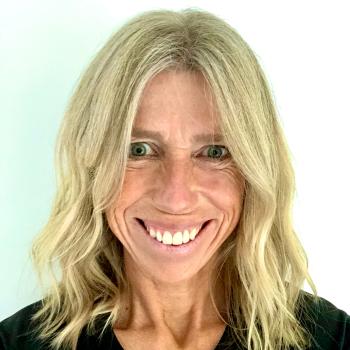
Ellen Kuhl
Walter B Reinhold Professor in the School of Engineering, Professor of Mechanical Engineering and, by courtesy, of Bioengineering
Stanford University

Steve Levine, Ph.D.
Sr. Director of Virtual Human Modeling and Executive Director of Living Heart Project
Dassault Systèmes

Dave Miller
Chief Science Officer
Unlearn.AI
Poster Presenters:
Ruopeng Sun, “Patterns of physical activity accumulation as a potential digital biomarker for low back pain phenotyping”
Lara Weed, “Predicting circadian phase using light data from a wrist-worn wearable”
Jerika Chiong, “Impact of molecular design on degradation lifetimes of degradable imine-based semiconducting polymers”
Junichi Kushioka, Ruopeng Sun, & Matthew Smuck, “Gait variability to phenotype common orthopedic gait impairments using wearable sensors”
Qianhe (Kelly) Liu, “Design of an intrinsically stretchable, photo-patternable n-type polymer semiconductor towards stretchable complementary circuits”
Bingyi Wang & Mohajeet Bhuckory, “Long-term integration of the retina with 3D implants: structure and function”
Tom Pritsky & Madhav Lavakare, “TranscribeGlass: The world’s first sub-$100 text-based wearable AR platform”
Ryo Eguchi, “Between-Tactor display using dynamic tactile stimuli”
Crystal Winston, “A 4-degree-of-freedom origami fingertip haptic device with pneumatic actuators”
Omar Elsafty, “Computational modeling of full thickness skin for wearable design and optimization”
Sebastian Hendrickx-Rodriguez, “Connecting skin biomechanical state to perception for wearables”
Koosha Nassiri Nazif, “Novel high-specific-power solar cells for powering wearable electronics”
Kaiwen Hsiao, “Single-digit-micron resolution CLIP printer for wearable electronics”
Manu Gopakumar, “Holographic glasses for virtual reality”
Ali Kight, & Ileana Pirozzi “Soft, wireless implantable sensor for continuous heart volume monitoring”
Shuai Wu, “Robotic microsurgeon spinners for minimally invasive surgeries”
Yilong Chang, “Shape reconfigurable vitrimer heart sleeve for heart deformation monitoring and stimulation”
Ella Thomson, “Miniaturized wireless potentiostat for intraoral sensing of glucose and lactate”
Jaeho Park & Chuanzhen Zhao, “Real time and multi-modal mental health monitoring system”
Hao-Wen Cheng, “Non-toxic molecular lubricants for intrinsically stretchable semiconducting polymer films”
Donglai Zhong, Can Wu, and Yuya Nishio, “Soft e-skin for measuring weak biological signals over a large area”
Weichen Wang, “Neuromorphic sensorimotor loop embodied by monolithically integrated low-voltage, soft e-skin”

Angela McIntyre, Host
Executive Director of eWEAR
Stanford University
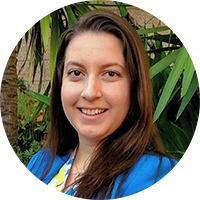
Katryna Dillard
Program Manager of eWEAR
Stanford University
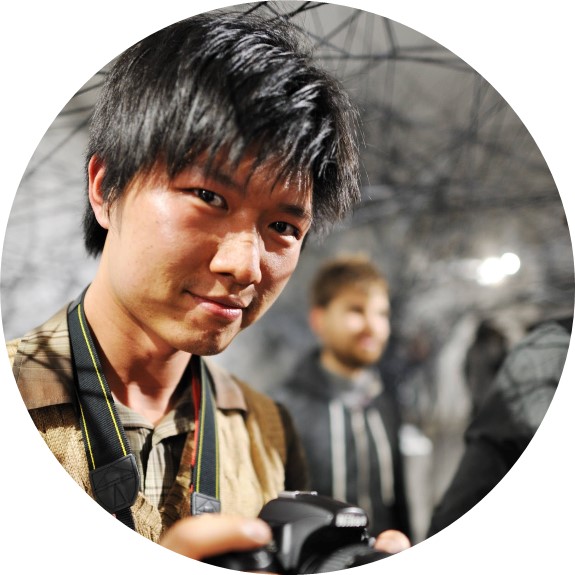
Yilei Wu, Photographer
Research Engineer, Chemical Engineering
Stanford University
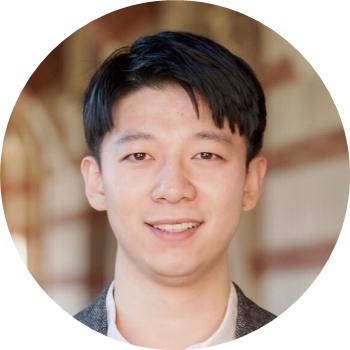
Chuanzhen Zhao, MC
Postdoctoral Scholar, Chemical Engineering
Stanford University
Chuanzhen Zhao is a postdoctoral scholar in Prof. Zhenan Bao’s lab at Stanford University. Dr. Zhao currently works on developing flexible and stretchable biosensors and bioelectronics.
Dr. Zhao did his Ph.D. with Prof. Paul S. Weiss and Prof. Anne M. Andrews at University of California, Los Angeles (UCLA). His Ph.D. research focused on developing translational biosensors, including implantable neuroprobes and wearable devices, to monitor chemical signaling in the body.

Lucia Brunel, Poster Session Organizer
Ph.D. Candidate in Chemical Engineering
Stanford University

Swetha Vaidyanathan, Registration Support
Maters Student, Materials Science and Engineering
Stanford University
Swetha is a second year MS student in the MATSCI department. She started writing articles for eWEAR at the intersection of wearables and neuroscience from February 2022. Her research interests include flexible batteries for wearables and battery recycling and resource recovery.
